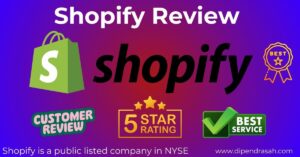Introduction to Mailchimp: What It Offers

Brief Overview of Mailchimp’s Platform
Mailchimp is a leading marketing automation platform designed to help businesses of all sizes create, manage, and optimize their email marketing campaigns. Founded in 2001, Mailchimp has evolved from a simple email marketing tool into a comprehensive digital marketing solution, offering features like automation, customer segmentation, CRM integration, and advanced analytics.
With its user-friendly interface and scalable solutions, Mailchimp caters to freelancers, small businesses, and large enterprises alike. The platform’s cloud-based infrastructure ensures accessibility from anywhere, making it a popular choice for businesses looking to streamline their marketing efforts.
Comprehensive Marketing Solutions Offered by Mailchimp
Mailchimp provides a wide range of marketing tools, including:
- Email Marketing: Drag-and-drop email builders, customizable templates, and A/B testing.
- Automation: Pre-built workflows for welcome emails, abandoned cart reminders, and follow-ups.
- Audience Segmentation: Advanced targeting based on customer behavior, demographics, and engagement.
- CRM Tools: Contact management and lead tracking.
- Social Media Ads: Integration with Facebook and Instagram for targeted ad campaigns.
- Landing Pages & Websites: No-code builders for creating branded web pages.
- Analytics & Reporting: Real-time insights into campaign performance.
How Mailchimp Adapts to Businesses of Different Sizes and Industries
Mailchimp’s flexibility makes it suitable for various industries, including eCommerce, nonprofits, education, and B2B services.
- Small Businesses & Startups: Affordable plans with free tiers for basic email marketing.
- Mid-Sized Companies: Advanced automation and segmentation for growing audiences.
- Enterprises: High-volume sending, API access, and dedicated support for large-scale operations.
By offering scalable pricing and feature sets, Mailchimp ensures businesses only pay for what they need while allowing room for growth.
Ease of Use: Navigating the Interface
Intuitive Design and User-Friendly Dashboard
Mailchimp’s dashboard is clean and well-organized, making it easy for beginners to navigate. Key sections include:
- Campaigns: Create and manage email campaigns.
- Audience: Manage subscriber lists and segments.
- Automations: Set up triggered email sequences.
- Reports: Track performance metrics.
The drag-and-drop editor simplifies email creation, while guided tutorials help new users get started quickly.
Customizable Templates and Campaign Creation
Mailchimp offers hundreds of professionally designed templates for emails, landing pages, and social media ads. Users can customize colors, fonts, and layouts to match their brand identity.
Integration Capabilities with Other Online Tools
Mailchimp integrates with over 300 third-party apps, including:
- E-commerce Platforms: Shopify, WooCommerce, Magento
- CRM Systems: Salesforce, HubSpot, Zoho
- Social Media: Facebook, Instagram, Twitter
- Analytics Tools: Google Analytics, Zapier
These integrations streamline workflows and enhance marketing efficiency.
Features and Functionality: A Deep Dive
Email Marketing Automation and Segmentation
Mailchimp’s automation tools allow businesses to send personalized emails based on triggers such as:
- Welcome Series: For new subscribers.
- Abandoned Cart Emails: For eCommerce recovery.
- Birthday/Anniversary Emails: For customer retention.
Segmentation helps target specific audience groups, improving engagement rates.
Data Analytics and Reporting Tools
Mailchimp provides detailed reports on:
- Open rates
- Click-through rates (CTR)
- Subscriber growth
- Revenue tracking (for eCommerce)
These insights help refine marketing strategies.
Creative Content Studio and Email Design Options
The built-in Creative Assistant uses AI to generate design suggestions, while the Content Studio stores brand assets for easy access.
Customer Experience: User Testimonials
Small Business Owners’ Feedback
Many small business owners praise Mailchimp’s affordability and ease of use, though some find pricing increases with list growth challenging.
Enterprise-Level Users’ Opinions
Larger companies appreciate advanced automation but sometimes require additional CRM features.
Common Praises & Criticisms
✅ Easy-to-use interface
✅ Strong automation features
❌ Pricing can escalate quickly
❌ Limited phone support
Customer Support and Resources
Self-Help Resources
Mailchimp offers:
- Video tutorials
- Webinars
- Knowledge base articles
Customer Service Quality
Support includes:
- Email & chat (24/7 for premium plans)
- No phone support for free users
Community Forums & Online Library
Active user forums and an extensive resource library aid troubleshooting.
Pricing: Plans and Value for Money
Free vs. Paid Plans
- Free Plan: Up to 500 contacts, basic features.
- Essentials ($13/month): Automation & templates.
- Standard ($20/month): Advanced analytics.
- Premium ($350/month): High-volume sending.
Comparison with Competitors
Mailchimp is competitively priced but can become expensive for large lists compared to ConvertKit or Sendinblue.
Competitive Analysis: How Mailchimp Stands Out
Mailchimp vs. Constant Contact vs. ConvertKit
FeatureMailchimpConstant ContactConvertKitEase of Use⭐⭐⭐⭐⭐⭐⭐⭐⭐⭐⭐⭐⭐Automation⭐⭐⭐⭐⭐⭐⭐⭐⭐⭐⭐⭐PricingMid-rangeHigherAffordable
Unique Selling Points
- AI-powered design tools
- All-in-one marketing suite
- Strong third-party integrations
SEO and Deliverability: Ensuring Email Reach
Email Deliverability Best Practices
Mailchimp provides:
- Spam testing tools
- Domain authentication (DKIM, SPF)
- List-cleaning features
Impact on Search Engine Visibility
While primarily an email tool, Mailchimp’s landing pages and integrations with Google Analytics help improve SEO.
Conclusion: Is Mailchimp the Right Choice for You?
Pros & Cons Summary
Final Verdict
Mailchimp is ideal for small to mid-sized businesses needing an all-in-one marketing solution. Enterprises may require additional CRM tools, but overall, Mailchimp remains a top choice for email marketing.



